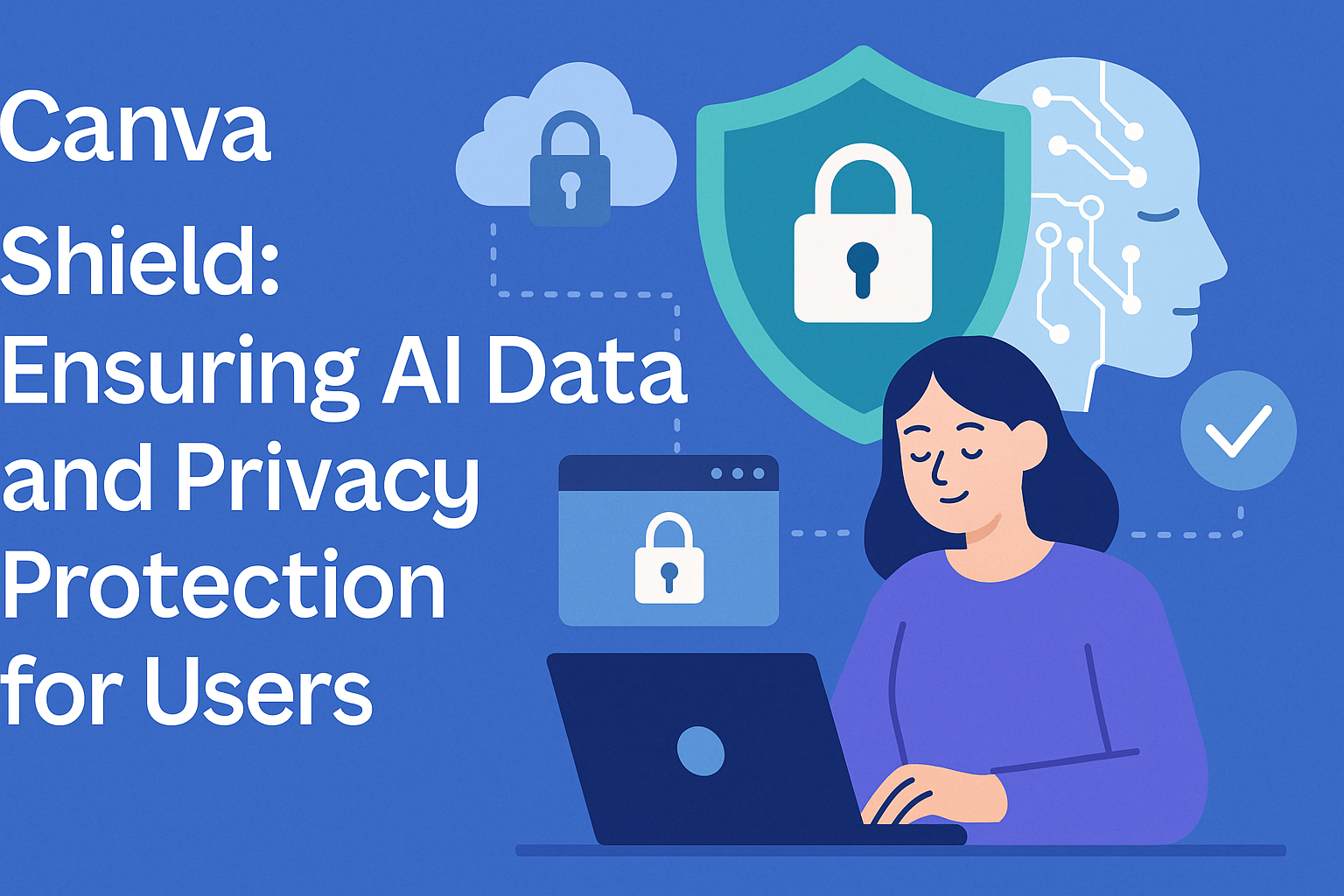Canva Shield is an important tool for users who want to keep their data safe.
This system ensures that user content and information are protected, allowing for a secure and trustworthy experience while using Canva’s AI features.
As more people rely on digital platforms for creative projects, understanding these privacy measures is crucial.
In an era where data breaches can occur at any time, Canva Shield addresses safety concerns directly. With features like content moderation and privacy settings, it aims to provide peace of mind to its users.
Those interested in protecting their creative work will find that Canva is taking significant steps to ensure a safe environment.
By prioritizing data security and user rights, Canva is setting a standard in the graphic design industry.
Readers will discover how Canva Shield works and what it means for the future of AI-powered tools.
Users can feel confident knowing their data is handled with care while they create.
Exploring Canva Shield
Canva Shield introduces essential tools for user security and data protection within the Canva platform. This section sheds light on what it is, its key features, and the role of AI in enhancing its functionality.
What Is Canva Shield?
Canva Shield is a specialized system designed to protect user data while using Canva’s various tools.
This system focuses on trust, safety, and privacy. It ensures users can create without worrying about their content being misused.
With features that enable users to control their data, Canva Shield empowers individuals and teams alike. This system reflects Canva’s commitment to maintaining a safe environment for creativity. It provides reassurance for artists, designers, and businesses using the platform.
Key Features of Canva Shield
Canva Shield boasts several important features that enhance data security.
One notable feature is advanced privacy controls. Users can manage how their data is used, which helps in maintaining personal privacy.
Additionally, Canva Shield offers AI indemnification for eligible users. This means that Canva takes responsibility for any issues arising from AI-generated content.
It also includes tools that ensure user content is processed locally, reducing data exposure.
Moreover, businesses using Canva get extra protection. This includes added layers of security for users in larger teams. These features ensure that all users can focus on their work without concerns about data breaches.
The Importance of AI in Canva Shield
AI plays a crucial role in the functionality of Canva Shield. It helps streamline processes while ensuring user data remains secure.
By processing data locally on devices, AI reduces reliance on external servers. This approach minimizes risks associated with data storage.
Furthermore, AI analyzes user interactions to improve tools, enhancing the overall user experience. As a result, users benefit from a platform that adapts to their needs while prioritizing safety.
Understanding Data Protection
Data protection is essential for keeping personal information safe from unauthorized access. It ensures that users can trust platforms to handle their data responsibly. This section covers the basics of data privacy and how Canva Shield prioritizes security.
Data Privacy Basics
Data privacy refers to how information about individuals is collected, stored, and used. It involves the right to control personal information and protect it from misuse.
Key aspects of data privacy include consent, transparency, and data minimization.
Consent means individuals should agree to how their data is used. Transparency involves informing users about data usage practices. Lastly, data minimization means collecting only the necessary information.
By following these principles, companies like Canva aim to build trust with their users.
Canva Shield’s Approach to Data Security
Canva Shield offers a comprehensive set of tools to protect user data. This system focuses on trust, safety, and privacy.
One of the key features of Canva Shield is its AI indemnification, which protects eligible users against data breaches.
Furthermore, Canva ensures that user data is processed locally. This means that sensitive information does not leave the user’s device, providing an extra layer of security.
Canva Shield also includes new privacy settings. Users can manage their data preferences easily. This approach helps users feel more in control of how their information is used, enhancing their overall experience on the platform.
User Control and Compliance
Canva Shield prioritizes user control over personal data while ensuring compliance with data protection laws. It empowers users to manage their privacy settings while adhering to global regulations.
User Privacy Settings
Canva provides robust privacy settings, allowing users to take charge of their data.
Users can customize their preferences for how their information is used and shared. This flexibility ensures that they feel comfortable while using the platform.
The privacy settings include options to opt-out of data collection for certain features. In addition, users can manage their consent for data sharing at any time, which adds an extra layer of security to their designs.
Canva also offers clear instructions on how to adjust these settings, making it easy for users to navigate their privacy options. This commitment to user empowerment helps build trust in the platform.
Compliance with Global Data Protection Regulations
Canva Shield is designed to comply with major global data protection laws. This includes the General Data Protection Regulation (GDPR) in Europe and the California Consumer Privacy Act (CCPA) in the United States.
Compliance means that users have rights regarding their data, such as the ability to access, correct, or delete their personal information.
Canva ensures transparency in its data practices by providing clear privacy policies that explain how data is handled.
Additionally, Canva regularly updates its practices to keep pace with changing regulations. This commitment helps users feel confident that their data is managed responsibly and in accordance with the law.

